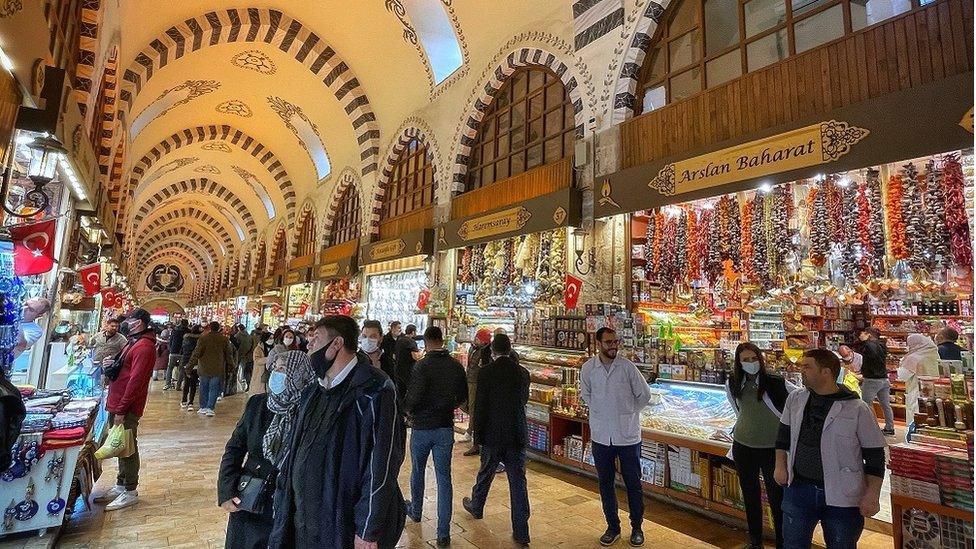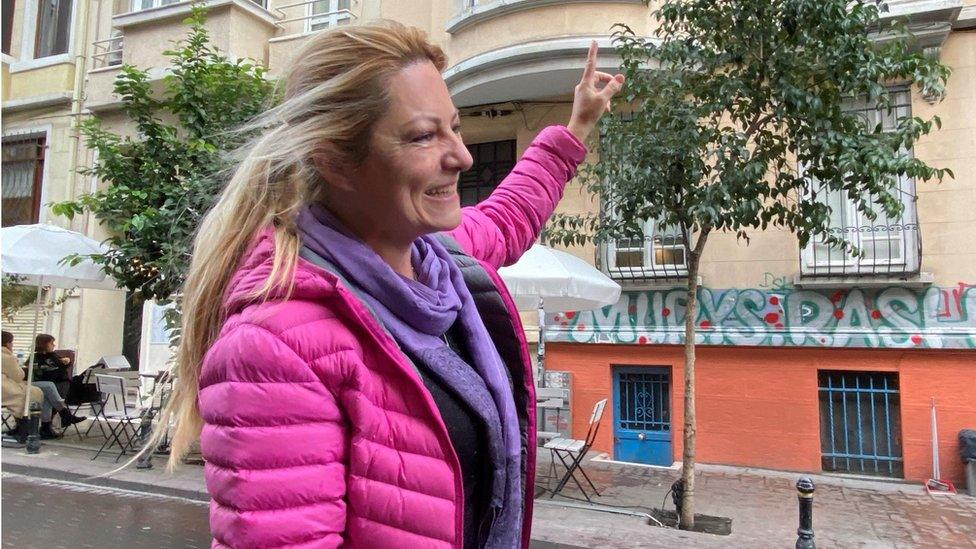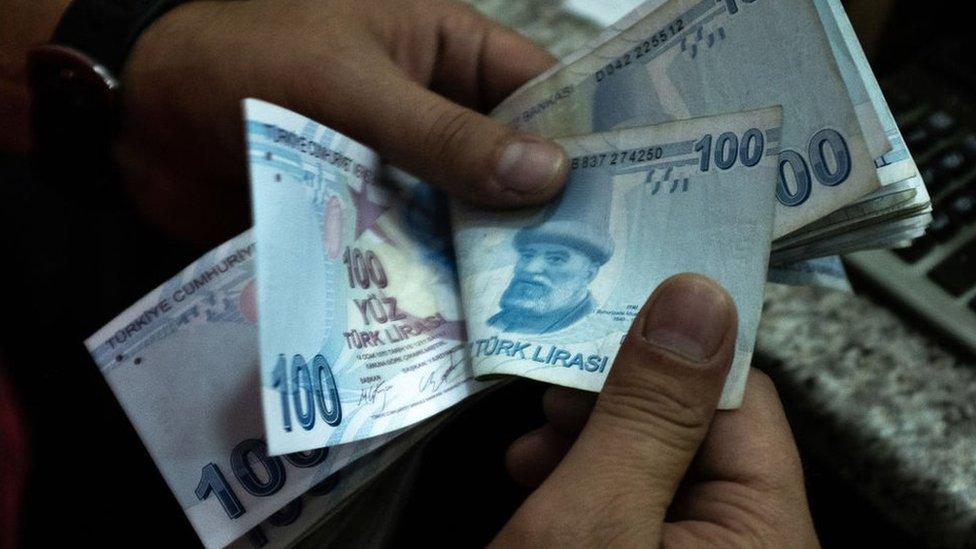Can tourism ease the inflation pressure in Turkey?
- Published

The Spice Bazaar is one of the major tourist attractions in Istanbul
Inflation is a battle people all over the world are fighting.
But the struggle is particularly acute in Turkey where people are finding it increasingly difficult to make ends meet.
They are making tough decisions about what they can afford and how they budget.
A mix of soaring inflation and a currency that's lost nearly half its value has created a cost of living crisis in the country.
Inflation surged to 48.7% in January, after reaching 36% in December.
But some economists think the actual rate could be much higher.
"There are groups of academics who have come up with a technical measure of inflation. Their measurement was close to 60% [in December]. This creates a huge burden on society at large," said Durmus Yilmaz.
He served as Turkish central bank governor between 2006 and 2011, and is now a member of the opposition party.
Just days before January's inflation data were released on Thursday, President Recep Tayyip Erdogan fired Sait Erdal Dincer, the head of Turkey's statistics agency.
Local media reported the decision was fuelled by the president's dissatisfaction with a worsening economic situation, and a desire to seek re-election next year.
In two weeks, Turkey's central bank will meet to discuss strategies for easing the pain on households.
But policymakers are unlikely to pursue the usual method of cooling inflation with higher interest rates.
That's because President Erdogan believes that higher rates cause inflation, a view that runs contrary to conventional economic theory.
And in four of the past five months, he has directed the central bank to instead cut rates.
This week the president said that for "some time," people across the country will have to "carry the burden" of inflation.
The high prices and depreciating currency have put a tight squeeze on household budgets.
The price of red meat, for example, has soared so much, many families say they can no longer afford it.
Those who can do so buy it less frequently or in smaller amounts.
In December, the lira's plunge forced grocery stores to re-price goods on the shelf almost every day.
And one woman, Montoya, who goes to university in Istanbul, said she decided to rent her extra bedroom to tourists to be able to make rent payments each month.
"I'm really worried about it, because I'm really scared when someone comes to me, and I don't know him or her.
"It's staying at home with someone I don't know.
"It's really scary, actually, but I can't do anything else. Yesterday I went to the market and one bag is 300 lira. One month ago it was 150," she said.
Tourism boost?
The economic situation is growing more severe for those inside the country.
But a favourable exchange rate has made Turkey a more attractive holiday destination for people in other parts of the world.
Before the coronavirus pandemic, in 2019 tourism brought $34bn (£25bn) into Turkey.
And though lockdowns and travel restrictions pummelled the sector in 2020, it bounced back in 2021.
Arrivals jumped 85.5%, though revenue was still a third lower than it was pre-pandemic.

Sebnem Altin says there's no guarantee that bookings won't be cancelled
Sebnem Altin leads group tours across the country for the Grand Circle Travel company.
She said there are bookings, but she believes the recovery is still fragile.
"This past season, people could just cancel their tours at the last minute and agencies are quite flexible with it, which is something new.
"For that reason, even though we have bookings and everything looks really beautifully rosy for the year coming up, we can never be sure that these bookings will be realised.
"So I always have concerns and I'm not confident, I have to say," she said.
What does a bread roll tell us about Turkey
Tourism makes up about 13% of Turkey's overall economy.
The country was the sixth-most popular tourist destination in 2019, according to the World Trade Organisation.
And, even then, it said the favourable exchange rate was a key factor in attracting tourists.
If the industry continues to recover as travel restrictions continue to ease this year, it could provide wider economic benefits for Turkey, according to Roger Kelly, a lead regional economist at the European Bank for Reconstruction and Development.
He said one of the underlying structural problems for the economy is the nation's current account deficit, which means the value of goods and services Turkey imports is more than exports.
More tourism revenue would help reduce that deficit, he said.
"Clearly, if you've got good tourism revenues coming in, this helps reduce the current account deficit, which makes financing it straightforward, which helps support the lira.
"It means your inflation problem is reduced, because a weaker lira helps to feed inflation.
"So, from that perspective, if you have a reasonably strong tourism season, this helps to support the lira and helps bring down inflation," Mr Kelly said.
- Published16 December 2021
